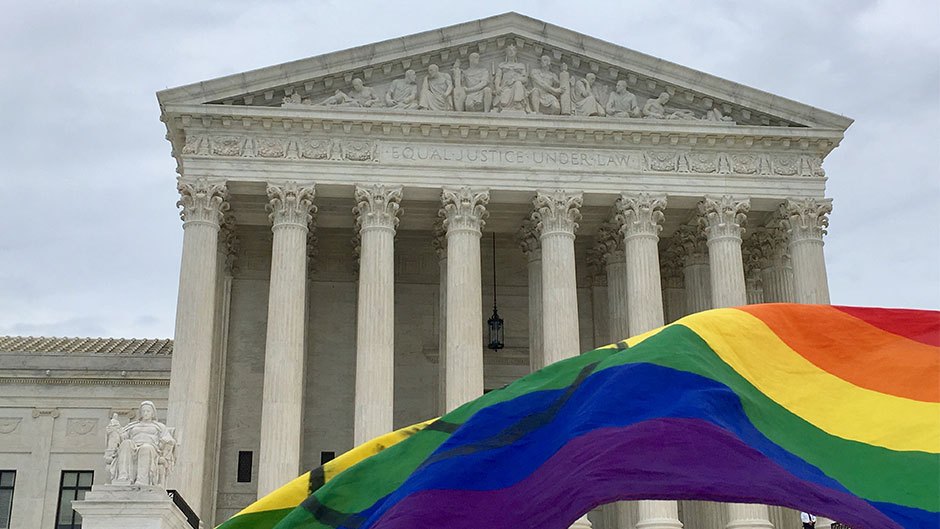On Monday, June 15, the U.S. Supreme Court ruled in Bostock vs. Clayton County, Georgia, that Title VII of the Civil Rights Act of 1964 protects gay, lesbian, and transgender employees from discrimination based on sex. The landmark ruling represents another major victory for the LGBTQ community, five years after the Supreme Court declared a fundamental right to marry for same-sex couples.
Amongst those celebrating the ruling is University of Miami School of Law alumna and attorney Elizabeth Schwartz, J.D. ’97. Schwartz is a nationally recognized advocate for the legal rights of the lesbian, gay, bisexual and transgender community. She served as counsel on the cases challenging Florida’s same-sex marriage ban brought by the National Center for Lesbian Rights (NCLR) and Florida's ban against LGBT people adopting children. She is co-chair of the national board of SAGE, an organization providing advocacy and services for LGBT elders.
She reflects on the decision and what it will mean for LGBT rights moving forward.
How surprising was the decision given that two conservative judges sided with the court’s four liberals?
On the one hand, it’s shocking and it’s amazing that these conservative justices were willing to protect this community. On the other hand, when you consider that they cast themselves as strict textualists in terms of their rigid interpretation of language, it’s not that surprising. They were left with no other choice.
Still, it's quite an accomplishment. One of the things that's most amazing about it is that the impact is not only going to be felt in the employment arena. For example, recently, a married lesbian couple was denied access to a retirement facility because the facility only recognized marriage as between a man and a woman. The couple filed suit but the federal court dismissed it, saying that the Fair Housing Act's ban on sex-based discrimination doesn't prohibit discrimination against a lesbian couple. The NCLR brought an appeal and the case was stayed as the appeals court waited to see what would happen in the Bostock case.
As soon as the Bostock case was decided, the other side conceded that the same discrimination definition applies in FHA as in Title VII.
In his Bostock dissent, Justice Alito actually telegraphed for us all of the ways in which this is going to have an impact on other laws.
Do you think that public opinion had any effect on the decision?
I think that Chief Justice Roberts is starting to see the tide has turned, and the universe of people not supporting a bigoted view of the world. Perhaps he doesn't want to be on the wrong side of history.
And this decision bodes very well for the cultural evolution of our country with respect to seeing LGBT people as worthy of being treated as whole individuals.
What more still needs to be done?
Our end game is full lived equality for the entire LGBTQ community. The fact that we now have federal protections against discrimination doesn't help all LGBT people, especially in the more marginalized parts of the community, such as trans people, especially trans women of color, actually get the job that they need in the first place. We need to actually give folks employment opportunities and continue working to protect the most vulnerable among us.
We also need comprehensive and state protections. Congress needs to pass the Equality Act, which would provide comprehensive protections on the federal level. In Florida, which does not have any statewide discrimination protections, that means passing the Competitive Workforce Act. It would mean comprehensive discrimination protections statewide in housing, employment, public accommodations, and finance. And of course, we also need to make sure that we apply this proper interpretation of law to health benefits.
As important as a court victory is, it is also critically important for each person, whether in the community or an ally, to continue to tell our stories, to share our truths, to live our lives authentically, and to stand up against bigotry when we see it. That is how hearts and minds change. And we also need to vote for LGBT-friendly candidates for every office from the White House to school board.

